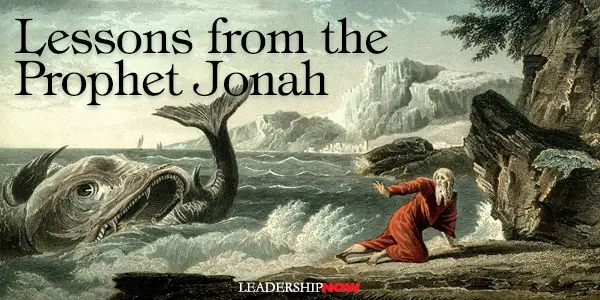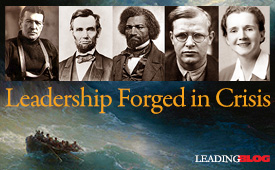Lessons from the Prophet Jonah

TWO DAYS AGO, on Yom Kippur — a day about braking wickedness — at synagogues around the world, a book about breaking wickedness — the book of Jonah — is read. In the Jerusalem Post, the dean of the Schechter Rabbinical Seminary, Einat Ramon draws a perspective on leadership and responsibility from the book of Jonah that I had not read before. He writes:
We are currently in a crisis of leadership, having lost faith in our leaders. In the Minha service on Yom Kippur, we read the Book of Jonah. Jewish tradition seeks to conclude Yom Kippur with the universal story of the prophet whose response to the call to prophecy, to leadership, is: "And Jonah arose to flee to Tarshish from before God" (1:3). Why did Jonah flee? And from what?
The midrash in Pirkei d'Rabbi Eliezer (ninth century) stresses that Jonah was an extraordinarily successful prophet (10). Every time he brought the word of God to his audience - Jews and non-Jews alike - they were persuaded by his words of reproof and repented. Why then did he seek to hide? Did he, as is commonly interpreted, truly desire that the people of Nineveh be punished rather than repent?
According to the Midrash, Jonah's flight derived from his sensitivity to public opinion. Jonah understood that which modern statistics have shown us, that the chances of a leader being popular once he acts like a leader are about 8 percent. In other words, leadership almost always is met by disdain and ingratitude, and alienation from the people.
The Book of Jonah, like the Book of Deuteronomy, which deals with the leadership struggles of Moses, reflects the leader's pain. In general, the Jewish sources set a high threshold for responsible leadership for the nation of Israel and for humanity to encourage us to assume positions of leadership despite the inevitable price exacted by these jobs.
Many people desire leaders who will stir their souls and flatter them and enwrap them within their inflated egos. They transform the popular leader into a divine shadow that is plainly or mysteriously distant. Though pleasurable for the leaders, this is false prophecy. It does not lead society anywhere safe, good, useful or moral.
Trivia: Jonah was told to go to Nineveh. Nineveh today lies across the Tigris River from the modern Iraqi town of Mosul.
* * *

Like us on
Instagram and
Facebook for additional leadership and personal development ideas.



Posted by Michael McKinney at 08:42 AM
Permalink
| Comments (0)
| This post is about Leadership









